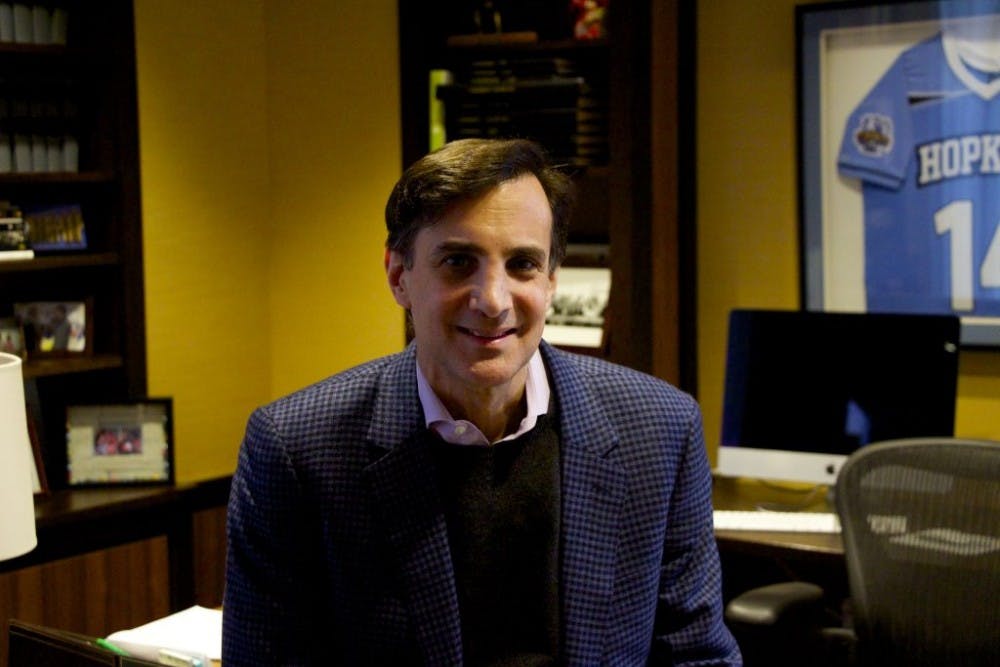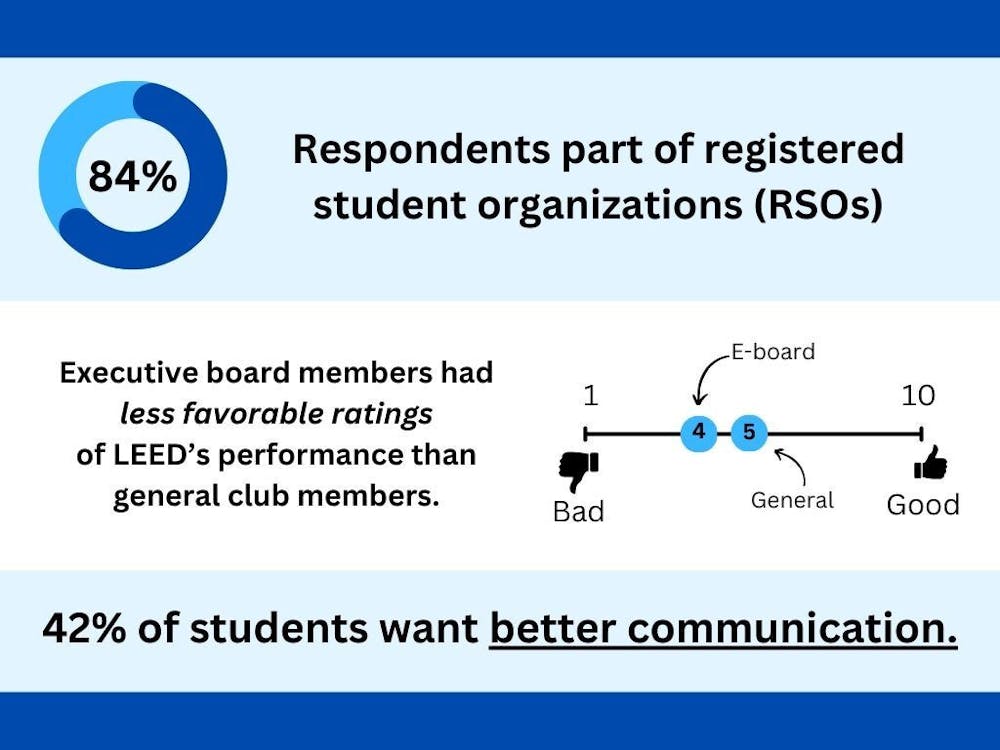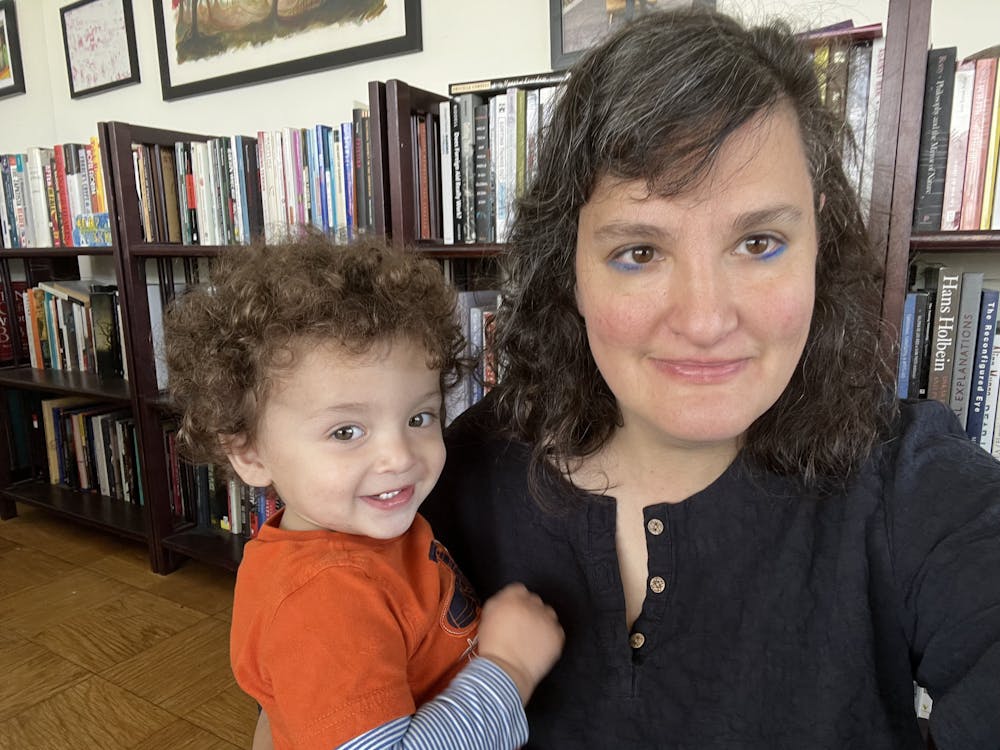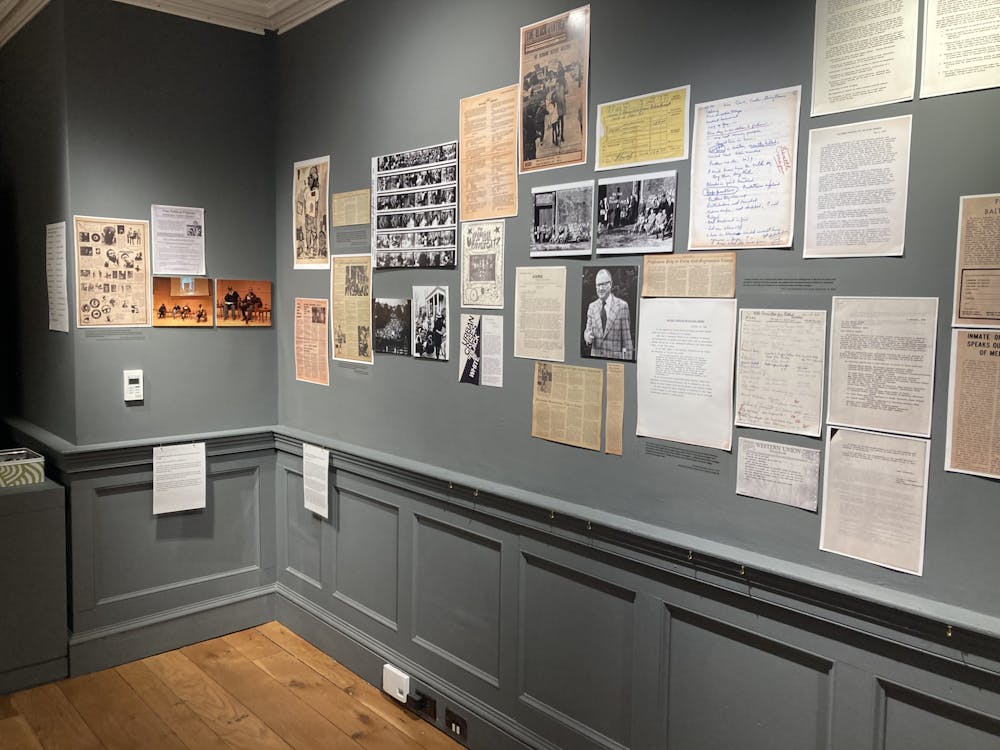In an interview with The News-Letter on Tuesday, University President Ronald J. Daniels shared his thoughts on mental health, campus security, the University’s endowment and the second Commission on Undergraduate Education (CUE2).
Mental Health
Many students feel that addressing mental health on campus should be a priority for the University. Daniels acknowledged that the academic rigor at Hopkins can contribute to a culture of stress.
“Hopkins students — like all undergraduate students in very competitive programs — are intense,” he said. “They’re ambitious. They’re understandably anxious about the world that they’re entering into. That can’t help but create moments of stress that are manifested in a number of different mental health-related issues.”
However, while Daniels acknowledged that many students face stress-related struggles, there are specific ways in which the University can help students improve their mental health.
“We know that Hopkins has a distinct culture, and I think that it is a ‘work-hard culture,’” he said. “But at times, that ‘work-hard culture,’ I think, is over-weighted at Hopkins. We want to find ways in which we can help our students gain perspective and balance.”
Specifically, Daniels referenced the Task Force on Student Mental Health and Wellbeing, which released its draft in May. The recommendations detail plans to create a supportive campus climate, expand student health resources and develop training on mental health awareness.
Daniels said that he appreciated the recommendations for addressing ways in which the University can provide more resources for students while equipping them with holistic strategies to improve their wellbeing.
“There is both an understandable emphasis on enhancing the resources and supports that are available through mental health counseling services, but at the same time, there’s a recognition of... how exercise, yoga and other coping techniques can lead to more balance,” he said.
The Endowment
Some have questioned how universities invest their endowments after the Paradise Papers, a set of 13.4 million leaked documents, revealed that many institutions have invested in offshore funds.
According to The New York Times and The Guardian, Hopkins invested with four other universities in a Bermuda-based corporation called H&F Investors Blocker until 2011.
The University has not commented on offshore investments and has not disclosed information on its past relationship with H&F Investors Blocker, maintaining that it works to grow the endowment and maximize returns. Daniels emphasized that Hopkins complies with the law in its investments.
“The Hopkins endowment is a mere fraction of [that of] our peers with whom we are competing for students and faculty,” he said. “It’s important that we do our best to maximize returns from it so we can support a wide range of activities at the University.”
In response to criticisms that offshore investments take money away from the federal government and perpetuate wealth inequality, Daniels highlighted the ways in which Hopkins works to help the Baltimore community.
“Quite apart from what we do with the endowment, and particularly in this time with the significant stress that is being experienced in Baltimore, the University is very committed to sharing its resources — financial, intellectual and moral — to improve the condition of the City,” he said.
Although the University is not required to pay taxes as a nonprofit institution, Daniels added that Hopkins makes contributions to benefit the City and its residents.
“The University makes a voluntary [payment in lieu of taxes] each year to the City,” he said. “The University makes significant payments in support of uncompensated medical care to surrounding residents. The University invests in a host of different programs in education, crime reduction and public safety all designed to benefit the community in which we’re a part.”

Security
In light of the recent increase in crime in neighborhoods surrounding the Homewood campus, Daniels discussed actions the University is taking to ensure the safety of Hopkins staff, faculty and students.
He noted that although his priority is maintaining the safety of the Hopkins community, he and Mayor Catherine Pugh have discussed how Hopkins can collaborate with the City to enhance its security.
Daniels also stressed the importance of working with residents of Charles Village and other neighborhoods around campus, including holding regular forums to discuss security issues.
“In truth, what we’re often hearing from [Baltimore community members] is, ‘please can you actually enhance the level of your patrols and oversight in order to better protect our community,’” he said.
Hopkins has committed to deploying more security officers in surrounding neighborhoods, but Daniels believes this alone is not enough to address crime in Baltimore.
“We recognize that patrolling with more boots on the ground — although an important short term measure — is not, in the medium or long term, the way in which we protect the campuses and improve the city of which we’re a part,” he said.
Daniels discussed University programs such as HopkinsLocal, an economic initiative that aims to improve the Baltimore community, and Vision for Baltimore, which provides eyeglasses to students in Baltimore City Public Schools.
“Every time I talk about security, I quickly move to discuss the importance of investing in the local communities, seeing an improvement in schools, seeing more retail activity coming into the neighborhoods and job creation,” Daniels said. “All of these activities basically are designed to ensure that the neighborhoods around us are as strong and vibrant as possible.”
In response to criticisms that the University is choosing to invest in more affluent neighborhoods near campus rather than low-income areas where many believe much of the City’s crime originates, Daniels stressed that there are in fact neighborhoods near the medical campus in need of investment.
“Certainly when one moves to East Baltimore, that is where a lot of the poverty and the most challenging conditions facing Baltimore residents are,” he said. “As we think about what we need to do close to home, that actually converges quite nicely with the neighborhoods of greatest need.”
The Commission on Undergraduate Education
As the University begins to collect input for its second Commission on Undergraduate Education (CUE2), Daniels reflected on the importance of the first Commission 14 years ago.
“The first CUE report represented a very significant moment in the life of the University,” Daniels said. “There was a commitment to take a look at the undergraduate experience, but very much from an extracurricular perspective: thinking about the quality of the campus, the range of support programs and the kinds of activities that students would participate in outside of the classroom.”
Daniels mentioned some of the first CUE’s achievements, such as cutting off vehicular access to the campus to create a more cohesive community and providing more support services for students. He discussed how CUE2 aims to focus on the academic aspects of undergraduate education to a greater degree than the first CUE.
“We didn’t locate the academic experience centrally in that discussion,” he said. “I thought it was important to be able to look holistically at the undergraduate experience and to recognize that what’s happening in the classroom is important and complemented what was outside.”
He explained that the Commission will take into account broader changes in technology, politics and other areas to ensure that students are equipped with the necessary skills to handle those changes.
“We’re still focused on giving students the knowledge, the methodologies, the understandings to navigate effectively in a complex world,” he said. “The world, even in the last nine years, has changed very significantly in a number of fronts... We want to make sure that we are equipping our students with the capacity to function effectively in that world.”

















Please note All comments are eligible for publication in The News-Letter.